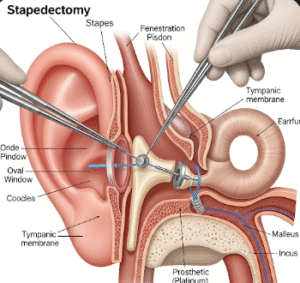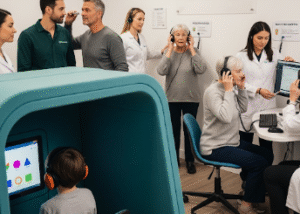Overview
Medullary Thyroid Cancer (MTC) is a rare type of thyroid cancer arising from parafollicular C-cells, which produce the hormone calcitonin. In South Korea, MTC accounts for a small fraction of thyroid cancers, with most cases identified through routine thyroid screenings or genetic testing. Early diagnosis and multidisciplinary management at centers like Samsung Medical Center, Asan Medical Center, and Seoul National University Hospital are critical to improving outcomes.
What is Medullary Thyroid Cancer?
MTC is a neuroendocrine tumor of the thyroid, distinct from the more common papillary or follicular thyroid cancers. It can occur sporadically or as part of Multiple Endocrine Neoplasia (MEN) syndromes, particularly MEN 2A and MEN 2B. MTC can metastasize to lymph nodes, liver, lungs, and bones, and its prognosis depends on stage at diagnosis and completeness of surgical removal.
Symptoms
- Thyroid nodule or neck lump
- Hoarseness or voice changes due to recurrent laryngeal nerve involvement
- Difficulty swallowing or a sensation of fullness in the neck
- Diarrhea or flushing in some cases due to hormone secretion
- Enlarged lymph nodes in the neck
- Occasionally, calcitonin-related symptoms if hormone levels are elevated
Causes
- Genetic mutations in the RET proto-oncogene, especially in hereditary cases
- Sporadic MTC with somatic RET mutations
- Part of MEN 2 syndromes, inherited in an autosomal dominant pattern
- Unknown factors in purely sporadic cases
Risk Factors
- Family history of MEN 2 syndrome or MTC
- Presence of RET gene mutation (hereditary MTC)
- Age over 50 for sporadic cases
- Gender: slightly higher incidence in women for sporadic MTC
- History of other endocrine tumors in syndromic cases
Complications
- Local invasion into surrounding neck structures (trachea, esophagus, nerves)
- Lymph node metastasis in the neck
- Distant metastasis to liver, lungs, or bones
- Persistent or recurrent disease after surgery
- Hormonal symptoms such as diarrhea or flushing
Prevention
- Genetic testing for RET mutations in families with MEN 2 syndromes
- Prophylactic thyroidectomy for children or adults with high-risk RET mutations
- Regular thyroid and neck examinations for at-risk individuals
- Prompt evaluation of neck nodules in adults, especially with a family history
Treatment Options in Korea
Treatment in Korea is multidisciplinary, often involving endocrinologists, surgical oncologists, radiation oncologists, and genetic counselors.
- Diagnosis & Staging
- Neck ultrasound and fine-needle aspiration (FNA) biopsy
- Serum calcitonin and CEA levels for diagnosis and monitoring
- Genetic testing for RET mutations in suspected hereditary cases
- CT, MRI, or PET-CT to assess lymph node and distant metastasis
- Surgical Management
- Total thyroidectomy with central neck lymph node dissection
- Lateral neck dissection if lymph nodes are involved
- Surgery is the main curative approach and should be performed at high-volume centers
- Medical & Targeted Therapy
- Tyrosine kinase inhibitors (TKIs) such as vandetanib or cabozantinib for advanced or metastatic MTC
- Symptomatic management for hormone-related effects (diarrhea, flushing)
- Clinical trials may be available at major Korean cancer centers
- Radiation Therapy
- Rarely used as primary treatment
- Can be considered for locally advanced or unresectable disease
- Follow-Up Care
- Regular calcitonin and CEA monitoring to detect recurrence
- Neck ultrasound and imaging for residual or metastatic disease
- Genetic counseling and RET testing for family members in hereditary cases













